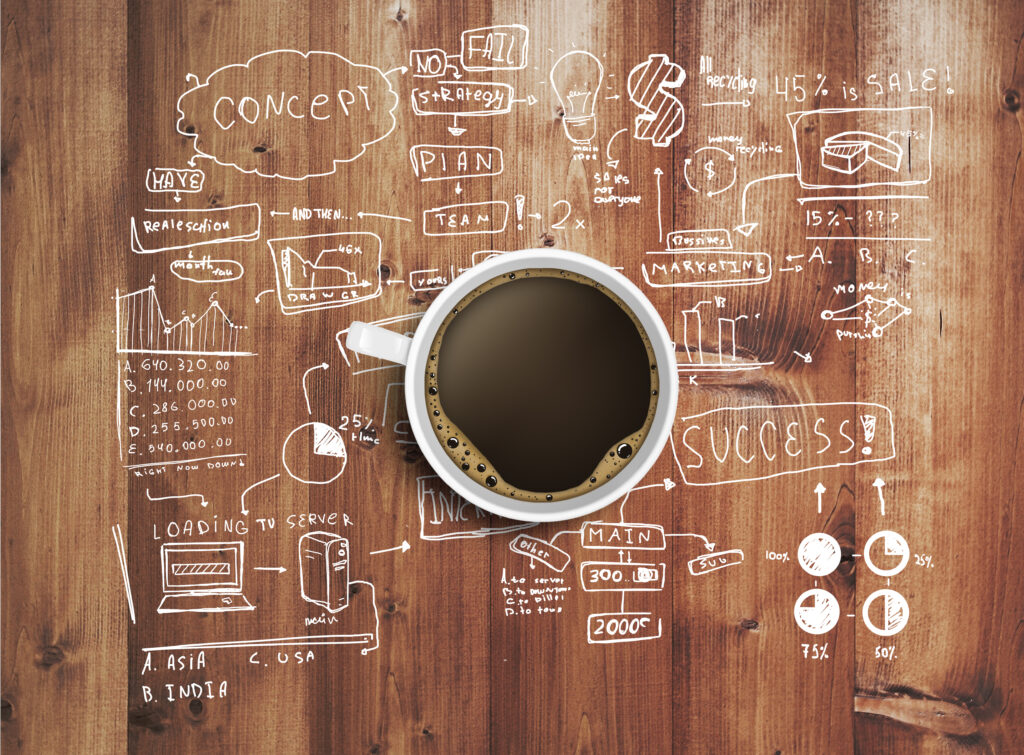
From the comforting aroma of a freshly brewed coffee that kick-starts our mornings to the invigorating energy shot provided by an afternoon tea, caffeine is an integral component of our daily routines. This potent compound, often hailed as the ‘fuel of the modern world’, is ubiquitous in our diets, primarily consumed through beverages like coffee, tea, and energy drinks. But does our daily caffeine fix serve a purpose beyond simply waking us up? As we delve into the enigmatic relationship between caffeine and creativity, we will explore how this popular supplement might be quietly shaping our innovative capacities, possibly steering the course of our day-to-day ingenuity.
Caffeine operates by blocking adenosine receptors in the brain. Adenosine is a neurotransmitter that promotes sleep and relaxation, essentially slowing down brain activity. When this is blocked, the levels of other neurotransmitters like dopamine and norepinephrine increase, leading to heightened brain activity. This boost in brain activity enhances various aspects of cognitive function such as memory, mood, vigilance, energy levels, and overall mental function. These effects could potentially create an optimal mental environment for innovative thinking and creativity.
In mounting evidence, caffeine has been linked to enhanced creativity. A study conducted by the University of Arkansas discovered that caffeine doesn’t just keep you awake — it can also make you more susceptible to ‘aha’ moments and innovative thinking. Furthermore, in a survey by the psychologist and author Dr. Adam Grant, over 1600 creatives were asked about their rituals and routines. It was found that a high percentage of these individuals started their day with a caffeine-infused drink, attributing it as a significant factor in stirring their creative juices. This connection between caffeine and creativity is not merely coincidental but has a scientific backing that reinforces the notion of caffeine as a catalyst for innovation.
Caffeine is widely acclaimed for its role in promoting mental alertness. It acts as a stimulant, counteracting the onset of tiredness and enabling individuals to maintain focus and concentration over extended periods. This heightened alertness can prove invaluable in tasks demanding prolonged mental effort or those requiring an acute sense of attention to detail. Similarly, caffeine’s influence on memory and cognitive functions cannot be overlooked. By stimulating certain parts of the brain, caffeine can enhance short-term recall and improve reaction times, making it a valuable ally in tasks that demand quick thinking and responsiveness. As such, the positive impact of caffeine extends beyond merely dispelling morning grogginess, potentially providing a significant boost to our cognitive capabilities.
Cultivating a balanced relationship with caffeine can greatly enhance its role in fostering creativity. It’s crucial to remember that while caffeine can stimulate alertness and cognitive performance, its effects can vary based on individual tolerance and the amount consumed. It’s generally recommended to limit daily intake to around 400mg, equivalent to about four cups of coffee. Consuming caffeine too late in the day can interfere with sleep patterns, which can subsequently impact overall cognitive performance and creativity. Therefore, it’s beneficial to consume caffeine in moderation and at strategic times, like during morning hours or early afternoon to optimize its positive impact on creative pursuits.
Caffeine serves as more than just an engine to power us through our mornings; it has a profound impact on fostering creativity and enhancing cognitive functions. It works by invigorating the mind, sharpening focus, and potentially sparking the ‘aha’ moments that lead to innovative thinking. Its positive effects extend to improved memory, reaction times, and overall mental performance. However, it’s essential to strike a balance and monitor intake to harness its benefits optimally. Overconsumption or ill-timed caffeine use can counter its advantages, impacting sleep and overall cognitive health. Therefore, used wisely and in moderation, caffeine can indeed become a valuable tool in our creative toolbox. As we sip our morning coffee or afternoon tea, we aren’t merely quenching our thirst or warding off sleepiness; we are, quite possibly, stirring the pot of our creative genius


